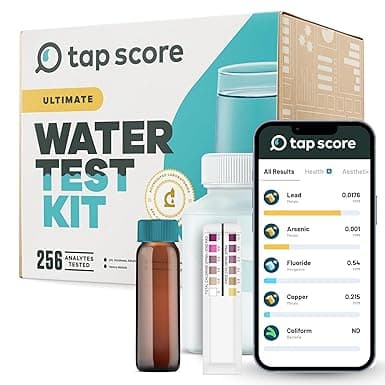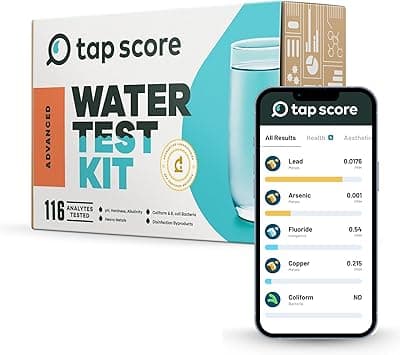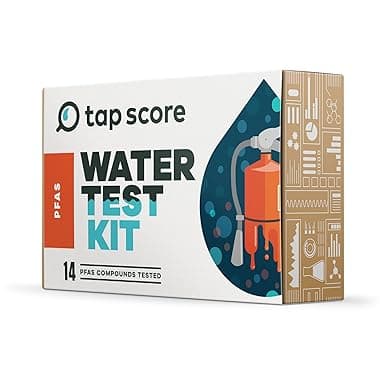Mountain Lakes Tap Water Quality Report
Mountain Lakes's water has 4 contaminants above EPA MCLGs. We recommend using a certified water filter.
Utility
MOUNTAIN LAKES WATER
People Served
4,012
MCL Violations
0
Last Updated
Is Mountain Lakes Tap Water Safe to Drink?
Mountain Lakes's water has 4 contaminants above EPA health-based guidelines. We strongly recommend using a certified water filter to reduce exposure to these contaminants. Check our filter recommendations below for NSF-certified options that can remove the specific contaminants found in Mountain Lakes's water.
The data below shows test results from 1 water utility serving 4,012 people in the Mountain Lakes area. Water quality testing is conducted regularly and reported to the EPA. This report was last updated 2025-08-22.
Mountain Lakes Water Service Areas
Loading service area map...
Recommended Water Filters for Mountain Lakes
Based on Mountain Lakes's water quality data, these NSF-certified filters are recommended to remove contaminants above EPA MCLGs.

Culligan
ZeroWater
NSF Certified:
Flow Rate
1.9 gpm
Daily Production
1 gpd
Removes 19 contaminants:
Nitrate, Copper, Zinc, Barium, Sulfate +14 more

AquaTru
Classic
NSF Certified:
Flow Rate
0.04 gpm
Daily Production
600 gpd
Removes 23 contaminants:
83+, Lead, Fluoride, Strontium, Uranium +18 more

AquaTru
Carafe
NSF Certified:
Flow Rate
0.3 gpm
Daily Production
4 gpd
Removes 17 contaminants:
PFOA, PFOS, Chlorine, Lead, Fluoride +12 more

Whirlpool Corporation
W11256135
NSF Certified:
Capacity
1001 gal
Filter Life
3 mo
Flow Rate
0.7 gpm
Removes 19 contaminants:
1,2 Dichlorobenzene, 1,4 Dichlorobenzene, 2,4-D, Asbestos, Atrazine +14 more
Verify Your Water Quality with Independent Testing
With 4 contaminants above EPA health guidelines, independent laboratory testing provides a second opinion and can track changes over time.

SimpleLab
Advanced Home Water Test
$369
Most comprehensive home water test including all standard tests plus additional parameters for ultimate peace of mind.

SimpleLab
Standard Home Water Test
$232
Comprehensive water analysis testing over 200 contaminants including bacteria, heavy metals, and chemical compounds.

Tap Score
PFAS Forever Chemicals Test
$239
Specialized test for PFOA, PFOS, and 24 other forever chemicals. Essential for areas near military bases, airports, or industrial sites.
Frequently Asked Questions About Mountain Lakes Tap Water
Mountain Lakes's water has 4 contaminants above EPA MCLGs. We strongly recommend using a certified water filter to reduce exposure to these contaminants. Check our filter recommendations below for NSF-certified options that can remove the specific contaminants found in Mountain Lakes's water.
Stay Informed About Your Water Quality
Get EPA reports, filter recommendations, and safety alerts for your area.
Join 10,000+ people protecting their families. Unsubscribe anytime.